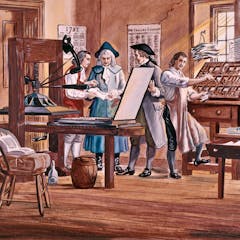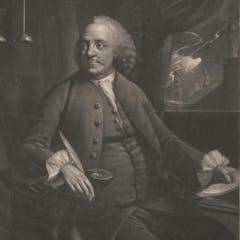
Articles on Colonial America
Displaying all articles

The founders saw a need for government to intervene in markets.

Popular culture often describes scalping − the forceful removing of a person’s scalp − as an indigenous practice. But white settlers accelerated this form of violence against Native Americans.

Americans are not the first to fret over the potential harm that parties can inflict. But parties can also promote the common interest.

Fuel for the American Revolution came from a source familiar today: distorted news reports used to drum up enthusiasm for overthrowing an illegitimate government.

When Bostonians in 1721 faced a deadly smallpox outbreak, a new procedure called inoculation was found to help fend off the disease. Not everyone was won over, and newspapers fed the controversy.

There’s a bittersweet history to chocolate in America. At one plantation museum in Virginia, the story of enslaved chocolatier Caesar shows the oppression that lay behind the elite’s culinary treat.

The health care inequities suffered by Black Americans today began centuries ago.

Modern dating techniques are providing new time frames for indigenous settlements in Northeast North America, free from the Eurocentric bias that previously led to incorrect assumptions.

During two 17th-century medical calamities, economic imperatives outweighed moral concerns.

When the founders wrote the Constitution, they had to devise a punishment fitting for a civil servant’s impeachment. One possible punishment: banishment from the community.

Powerful men often proclaim baseless accusations to be a ‘witch hunt.’ But American witch trials have always targeted a persecuted minority: women.

With levels of political discourse reaching new lows, some might say the country could use a dose of shame and humility. At the same time, social media have unleashed a torrent of online shaming.

Franklin advanced a scientific – not supernatural – understanding of astronomical events such as eclipses. His satirical character ‘Poor Richard’ mocked those who bought into astrological predictions.

